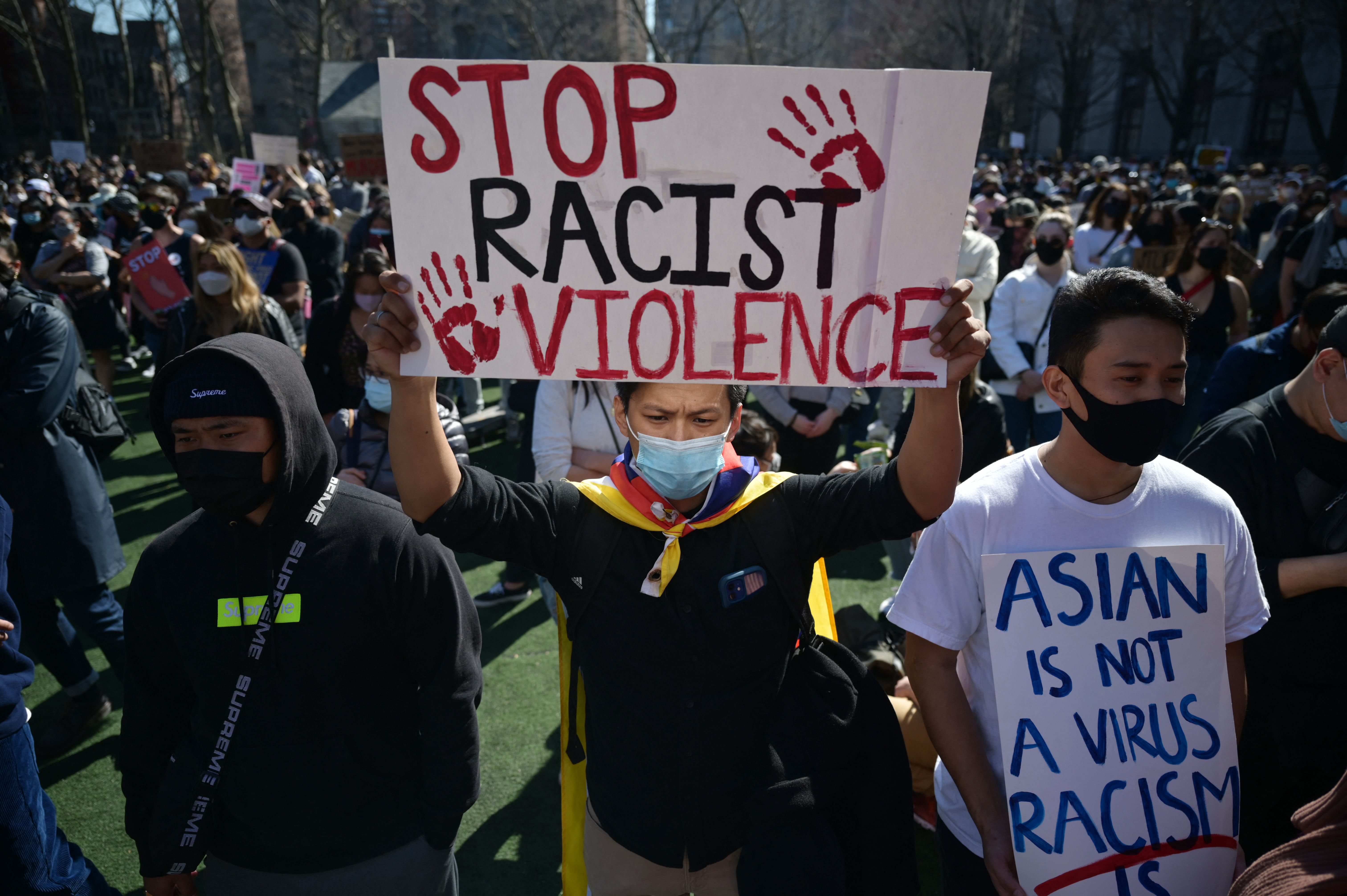

On Thursday, President Biden signed into law the COVID-19 Hate Crimes Act to combat the recent spike in racially biased assaults and violent crime against Asian-Americans since the outset of the coronavirus pandemic. The law, which passed by a vote of 94 to 1 in the Senate and 364 to 62 in the House, is being lauded as a “significant break” in Washington’s political impasse and a glimmer of hope for future bipartisan legislation.
“We simply haven’t seen this kind of bipartisanship for much too long in America,” Biden said to lawmakers. With conflicting political agendas and similarly polar stances on navigating the ramifications of COVID-19, both chambers have been encumbered in political gridlock. He continued, “All of this hate hides in plain sight. Too often it is met with silence — silence by the media, silence by our politics, and silence by our history.” Following a series of targeted shootings at Atlanta-area spas that left eight people dead (six of them were Asian women) in March, the historic wave of anti-Asian racism that rushed across the nation was placed center stage — calling both lawmakers and citizens to bolster their allyship and solidarity with Asian Americans and Pacific Islanders as they endured a proliferation of grave injustices. From March 2020 to March 2021, more than 6,600 anti-Asian hate incidents have been documented nationwide, according to the nonprofit Stop AAPI Hate, and activists surmise that the numbers are even higher as many hate crimes are unreported. Many point to former President Donald Trump’s vituperative remarks towards the AAPI community, namely coining the coronavirus as the “Kung flu,” as what galvanized lingering anti-Asian sentiments.
The legislation, introduced by Rep. Grace Meng, D-N.Y., and Sen. Mazie Hirono, D-Hawaii, aims to increase the accessibility of reporting hate crimes at both the local and state level. The Justice Department is set to establish a position to expedite the agency’s review of hate crimes and increase online resources and hotlines to report them, in an effort to create the infrastructure for a database. The measure also includes creating state-run hate crimes hotlines, ensuring reporting resources are available in multiple languages, and providing grants to law enforcement agencies to train officers to identify hate crimes.
During the 2020 election cycle, Biden and Vice President Kamala Harris proposed their ticket on a platform of unity that starkly contrasted the previous era of divisiveness. Harris, who is the nation’s first Asian American vice president, said of the legislation, “Here’s the truth: Racism exists in America. Xenophobia exists in America, antisemitism, Islamophobia, homophobia, transphobia — it all exists. And so the work to address injustice wherever it exists remains the work ahead.”














